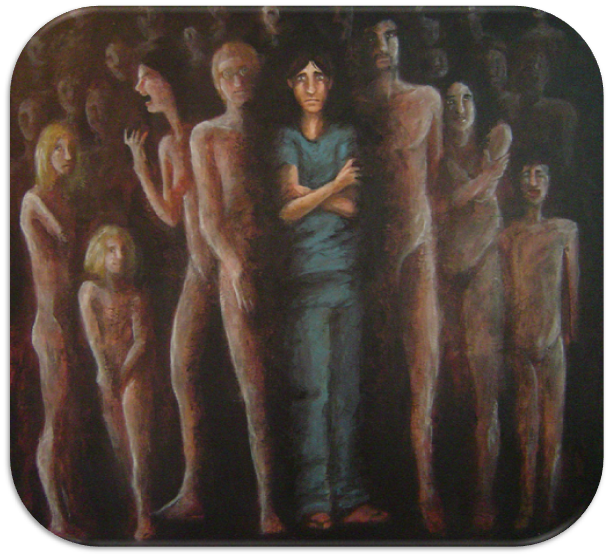
Dissociative identity disorder (DID), previously known
as multiple personality disorder (MPD), is a mental illness characterized by at least two distinct and relatively enduring
personality states. This is accompanied by memory gaps beyond what would be explained by ordinary forgetfulness. The personalities
alternately show in a person's behavior;presentations, however, are variable.Other problems which often occur in people with DID include
borderline personality disorder (BPD),
posttraumatic stress disorder (PTSD), depression, substance use disorders, self-harm, or anxiety. Some professionals believe the cause
to be childhood trauma. In about 90% of cases, there is a history of abuse in childhood, while other cases are linked to experiences of
war or health problems during childhood. Genetic factors are also believed to play a role. An alternative hypothesis is that it is a
by-product of techniques employed by some therapists, especially those using hypnosis. The diagnosis should not be made if the person's
condition is better accounted for by substance abuse, seizures, imaginative play in children, religious practices, or other mental health
problems. Treatment generally involves supportive care and counselling. The condition usually persists without treatment. It is believed
to affect about 1.5% of the general population (based on a small US community sample), and 3% of those admitted to hospitals with mental
health problems in Europe and North America. DID is diagnosed about six times more often in females than males. The number of cases
increased
significantly in the latter half of the 20th century, along with the number of identities claimed by those affected. DID is controversial
within both psychiatry and the legal system.In court cases, it has been used as a rarely successful form of the insanity defense. It is
unclear whether increased rates of the disorder are due to better recognition or to sociocultural factors such as media portrayals. A large
proportion of diagnoses are associated with a small number of clinicians, which is consistent with the hypothesis that DID may be
therapist-induced. The typical presenting symptoms in different regions of the world may also vary depending on how the disorder is depicted
by the media.





Dissociative identity disorder (DID), previously known as multiple personality disorder (MPD), is a mental illness characterized by at least two distinct and relatively enduring personality states. This is accompanied by memory gaps beyond what would be explained by ordinary forgetfulness. The personalities alternately show in a person's behavior;presentations, however, are variable.Other problems which often occur in people with DID include borderline personality disorder (BPD), posttraumatic stress disorder (PTSD), depression, substance use disorders, self-harm, or anxiety. Some professionals believe the cause to be childhood trauma. In about 90% of cases, there is a history of abuse in childhood, while other cases are linked to experiences of war or health problems during childhood. Genetic factors are also believed to play a role. An alternative hypothesis is that it is a by-product of techniques employed by some therapists, especially those using hypnosis. The diagnosis should not be made if the person's condition is better accounted for by substance abuse, seizures, imaginative play in children, religious practices, or other mental health problems. Treatment generally involves supportive care and counselling. The condition usually persists without treatment. It is believed to affect about 1.5% of the general population (based on a small US community sample), and 3% of those admitted to hospitals with mental health problems in Europe and North America. DID is diagnosed about six times more often in females than males. The number of cases increased significantly in the latter half of the 20th century, along with the number of identities claimed by those affected. DID is controversial within both psychiatry and the legal system.In court cases, it has been used as a rarely successful form of the insanity defense. It is unclear whether increased rates of the disorder are due to better recognition or to sociocultural factors such as media portrayals. A large proportion of diagnoses are associated with a small number of clinicians, which is consistent with the hypothesis that DID may be therapist-induced. The typical presenting symptoms in different regions of the world may also vary depending on how the disorder is depicted by the media.



